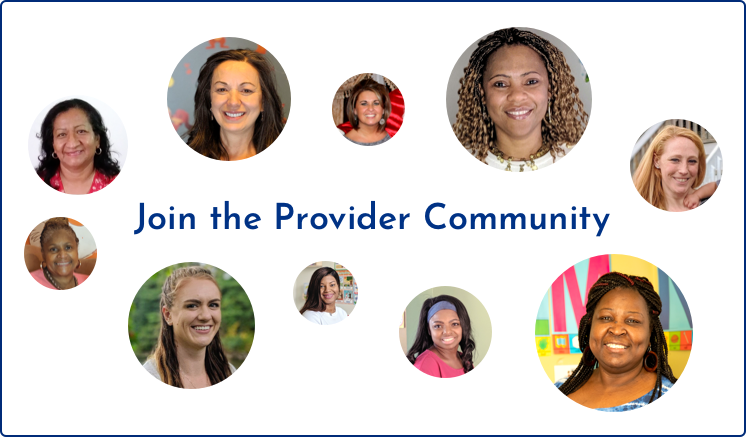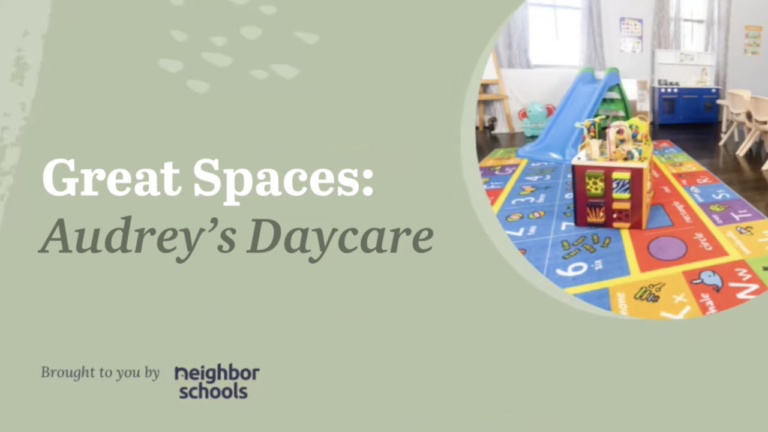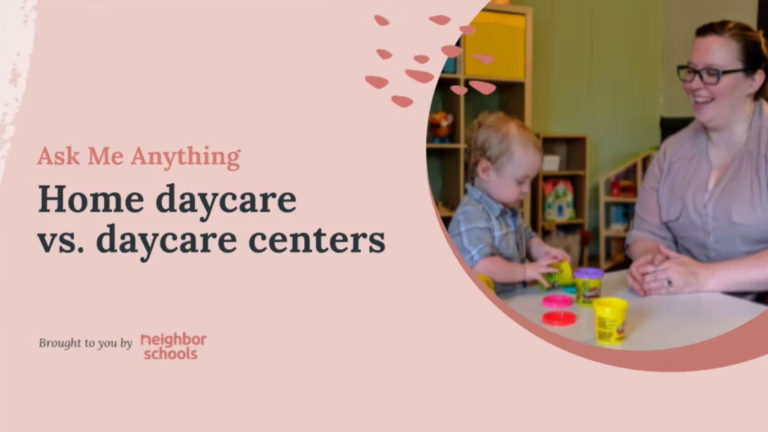With COVID-19 putting child care at a standstill, there is so much uncertainty surrounding how and when we’ll reopen. The only Providers that have an idea of what the “new normal” will look like are those currently providing emergency care for families of essential workers. One of those Providers is Ms. Dottie, a NeighborSchools Provider in Dorchester, MA.
To help us prepare for a new reality, Dottie shared four key takeaways from her experience as an Emergency Care Provider. Her insights are valuable as we prepare to reopen our daycare doors.
Find opportunity through challenges
“With every challenge, there is an opportunity,” Dottie says. “Out of the 550 emergency care programs, the majority are home daycares. Home Daycare Providers are not babysitters, but educators who are as essential as any worker in a center. This is evident now more than ever.”
Dottie urges Providers to help keep the momentum behind home daycares going far beyond the pandemic. She is optimistic about the EEC. She believes leadership is listening and willing to roll up their sleeves to get the job done. But, she stresses that change cannot happen without action. Providers need to unite and share their experiences, questions, and concerns. It’s time to be present in the movement by taking surveys and joining webinars that the EEC and other child care groups offer.
“The more Providers are seen,” Dottie urges, “the more they will be heard.”
The “new normal” won’t be that different
“What is required is doable,” Dottie ensures. “I don’t want other Providers to panic—we’re more prepared for this than you think.”
Before the pandemic, home daycares already had gold stars when it came to following health and safety standards. The small, individualized environment and location of home daycares naturally guarantees that everything is regularly cleaned and well-cared for. Dottie quickly realized whatever the regulations may be, home daycares are the most likely out of any other child care option to rise to the challenge of new health and safety standards.
Immediately after opening her daycare to emergency care, she added a few new steps to her daily routine. Drop-off is now staggered and parents aren’t allowed inside. When the doorbell rings, Dottie opens the door slightly and hands the parent a clipboard with an attendance sheet attached. Then, she takes the child’s temperature. She takes the temperature again in the afternoon and she closely monitors the children for any changes in symptoms. If the child is sick or has a fever, Dottie has the right to refuse care. For further precaution, it is suggested children over the age of two wear masks.
For the rest of the day, Dottie continues most of her usual activities. She still has circle time, reading, and play. The school-aged children in her program have Zoom classes with their teachers. She’s still serving meals, using disposable plates just to avoid the hassle of sterilizing too many things every day!


Social distancing will be a challenge
From Dottie’s perspective, the biggest challenge is social distancing. Luckily, Dottie’s large space was a major factor in determining how many children she could have. She has a licensed basement space and multiple rooms on her first floor. Dottie also operates with one volunteer and one assistant, which allows her to keep children on different floors and keep adequate space. She makes that the children in her program are safely spaced out during meals and activities.
However, Dottie realizes that not all Providers have so much space! She encourages Providers who have limited space to declutter and possibly reorganize to better allow for social distancing.
One thing Dottie is sorely missing is having an outdoor area for children to run around safely. Her backyard is not licensed and, unfortunately, the local park is closed. To compensate, Dottie substitutes outdoor playtime with inside play and games. If Providers do have a licensed outdoor area, they should use it to their full advantage, especially during the upcoming summer months.


Be flexible and understanding
With so many families facing uncertainty, Dottie stresses the importance of being flexible. She never considered part-time care in the past. But with the impact of COVID-19 Dottie realized that she needs to adapt in order to support families as they transition back to a “new normal” too. “In order to stay alive, we need to be creative,” she says.
As we get ready to face a new world, Dottie reminds us that our strength will not only come from our skills and experience. We will ultimately find strength in numbers. The Provider community is united and will take on this new challenge together.
“This is something we all can do,” Dottie says. “That’s what you need to hold on to. Let’s do this together.”
Want to connect with the Provider community?
We’re hosting weekly video chats with Providers across Massachusetts as we get ready to reopen daycare doors on June 29.
Get on the invite list by signing up here.






